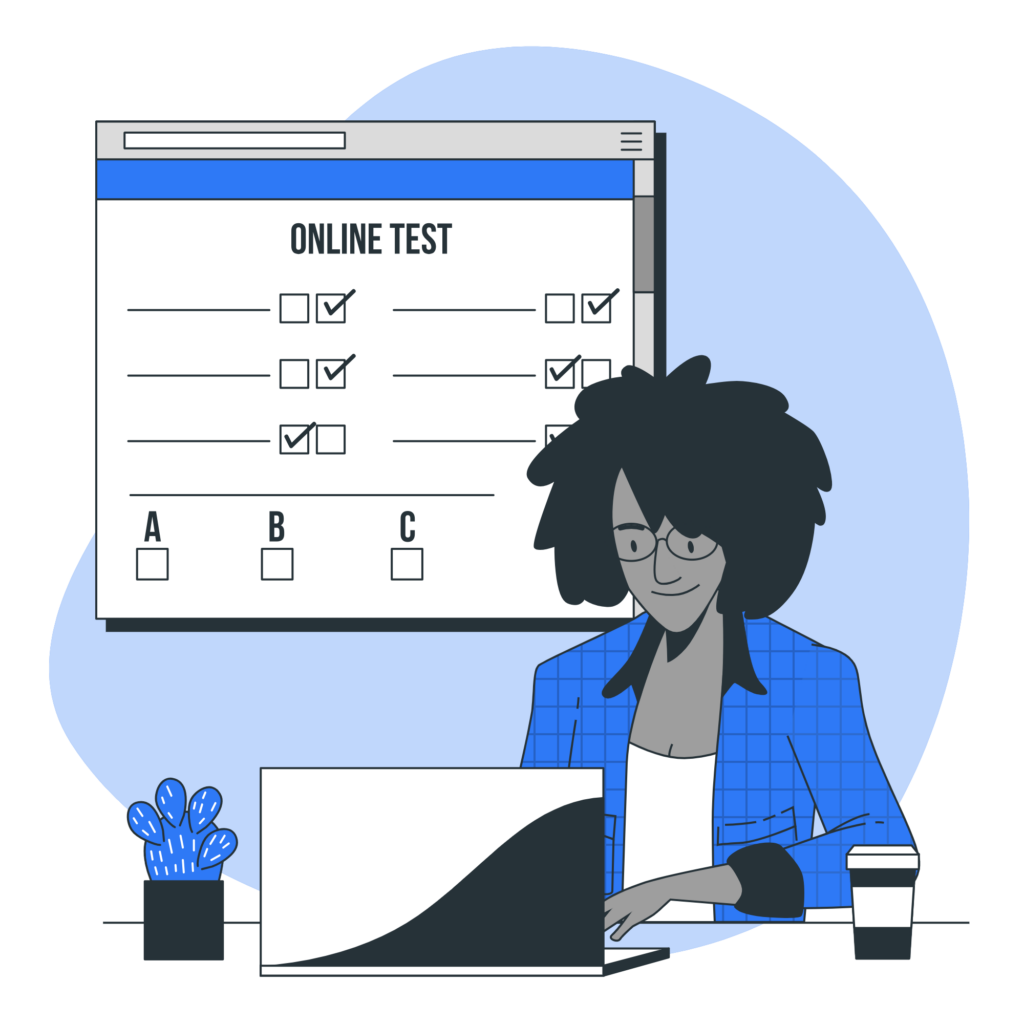More than just a team of experts crafting exam questions, the NBME joins hands with a diverse group from the medical education world – think students buzzing with questions, residents in the thick of learning, seasoned faculty, and administrators steering the ship. Together, they form dynamic committees, creating a space where conversations flow freely, updates on exams roll out seamlessly, and everyone chips in on refining assessments to make them even more effective.
The NBME sets the bar high, ensuring doctors possess the right mix of knowledge and skills before they step into the medical arena. But it’s not all about passing tests; the NBME decks out students and professionals with a treasure trove of resources to tackle the healthcare world’s challenges head-on.
Diving into this piece, we uncover the treasure trove of tools the NBME offers, highlighting how getting to grips with these resources and making the most of them can chart a course for a successful career in medicine.
Understanding NBME
At the heart of NBME lies a singular mission: to safeguard public health by setting the gold standard in assessments. This mission isn’t just about evaluating doctors; it’s about embracing the full gamut of health professionals at every stage of their journey—from learning to practicing, and everything in between, including the nuts and bolts of creating those crucial assessment tools.
With a vision aimed at elevating healthcare quality globally through these assessments, the NBME is on a mission to make a real difference. The goal? To ensure patients everywhere receive the best care possible.
The core values guiding this mission are all about breaking down barriers and building bridges. It’s about rooting out bias and fostering an environment where open collaboration with the medical education community isn’t just encouraged—it’s essential. By focusing on skills, knowledge, and behavior, the aim is to spark meaningful conversations and actions against discrimination and to push for fairness and equity in medical education and practice. This is about ensuring every future and current physician has the chance to excel and provide top-notch care to everyone, especially those in the most vulnerable communities.
But the NBME doesn’t stop there. It is dedicated to enhancing the medical education environment by providing tools for every stage of the academic journey, encouraging deep and meaningful collaborations, and making important contributions to the profession. The NBME enables medical educators to develop the coming generations of healthcare professionals by providing grants, awards, and continuous learning opportunities.
Guidance from a diverse board of directors—ranging from seasoned MDs to dedicated RNs—ensures the NBME stays responsive and relevant to the healthcare community’s evolving needs. Meanwhile, the Advisory Committee for Medical School Programs and collaborations with specialty clerkship societies keep the communication lines open, ensuring assessments align with national standards and the latest in medical education.
In the trenches, Executive Chief Proctors and Medical School Liaisons play vital roles in the administration of NBME assessments, from the logistics of ordering to the integrity of test day, all while ensuring a direct line of feedback from schools to NBME. This collaborative ecosystem ensures that as the medical education world evolves, NBME assessments remain at the forefront, true to their mission of protecting public health through excellence in assessment.

NBME Exam: Timeline of Innovations
- 1915: NBME is founded with twin goals: elevating medical practice standards and facilitating nationwide practice without re-examination.
- 1916: The inaugural NBME exam is held in Washington, DC. Of 32 physicians, 16 qualify, but only 10 take the week-long test, covering everything from anatomy to medical jurisprudence.
- 1921: The traditional unified exam format runs until this year, requiring travel for participants. The introduction of a three-part exam follows, expanding test centers across the U.S.
- 1923: Nearly 400 physicians have passed the National Board examinations by this time.
- 1951-1953: NBME experiments with multiple-choice questions in pharmacology and internal medicine exams, finding them more reliable and valid than essays.
- 1954: The annual meeting decides to replace essay questions with multiple-choice questions for Parts I and II, assigning test formulation to committees of experts.
- 1956: Over 2,000 candidates register for Part III of the certifying examinations, prompting a decentralized system with 33 hospitals as test centers.
- 1961: A revamped Part III introduces bedside evaluations, movie-based observation tests, and patient management problems.
- 1964-1988: Gradual discontinuation of Part III’s components, shifting towards computer-based testing.
- 1967: NBME begins exploring computer technology for clinical competence evaluation, leading to the computer-based examinations (CBX) development in 1984.
- 1988-1989: A coalition, including NBME, considers a unified medical licensure exam, leading to the Proposal for a Single Examination for Medical Licensure.
- 1990: NBME and FSMB agree to replace existing licensure exams with the USMLE, a single, uniform exam.
- 1992: The first USMLE Step 1 exam is administered in June, with full Step exams rollout by 1994.
- 1999: NBME Steps are administered via computer-based testing by year’s end.
- 2004: The stage 2 Clinical abilities test begins, which is a critical stage in evaluating doctor-patient contact abilities.
A recent research published in Academic Medicine provides solid evidence about the relationship between physicians’ performance on the USMLE and patient outcomes.
Conducted by researchers from the NBME, this retrospective study analyzed nearly 200,000 hospitalizations in Pennsylvania, encompassing five prevalent inpatient diagnoses over a span of three years. The study involved more than 1,750 family physicians and internists, correlating their USMLE scores with patient outcomes, specifically in-hospital mortality rates and lengths of hospital stay. The findings revealed a significant association: physicians who performed better on the USMLE generally had patients with lower mortality rates and shorter hospital stays.
Taking NBME Exams
Annually, more than 350 health professionals, encompassing medical school faculty and practicing physicians from over 140 organizations across the United States, collaborate both remotely and in person in Philadelphia under the auspices of the NBME. This diverse group works in concert with NBME staff, pooling their vast experiences and expertise to craft test items of the highest quality. These items are designed to reflect the real-world topics and challenges in both educational settings and clinical practice.
The Test Development Committees and Task Forces focus on specific areas of medical expertise, such as mental health and patient safety, and are made up of specialists in those fields. This guarantees that the NBME and USMLE tests appropriately measure the abilities necessary for effective and secure patient care, drawing on the collective knowledge of a diverse group of healthcare professionals.
CBSE NBME
The CBSE, or Comprehensive Basic Science Examination, is an important evaluation instrument used by medical schools to evaluate the fundamental information gained throughout preclinical training. The National Board of Medical Examiners (NBME) designed this standardized examination, which mimics the material of the USMLE Step 1, to serve as a predecessor and benchmark for assessing a student’s preparation for this critical exam. CBSE scores are converted into a Step 1 equivalent, providing a clear indication of where a student is in their Step 1 preparatory journey.
While the USMLE is a licensure requirement, the CBSE serves as a tactical self-assessment tool. It enables students to identify which areas require greater attention, guiding them to study more efficiently as they prepare for the Step 1 USMLE exam. Typically, medical students meet the CBSE around the conclusion of their preclinical phase, utilizing it as an assessment for their prior knowledge.
The NBME comprehensive basic science test scores between 1 and 300, with the average result lying around 231. The test itself consists of 184 multiple-choice questions divided over four 60-minute blocks, with results normally available approximately a week after the exam.
To enhance your CBSE preparation and performance, try the following strategies:
- Engage with NBME Self-Assessment, which is accessible for both Clinical Science Subject Exams and Comprehensive Exams, to gain a better understanding and discover areas for development.
- Identify the exam’s timing through the Subject Exam Timing Chart
- Dive into the subject outlines and example questions to get a sense of the exam’s structure or question format.
These steps can significantly aid in demystifying the CBSE, setting a clear path for your USMLE Step 1 preparation.
Useful Online Resources

International Foundations Of Medicine Examination
The International Foundations of Medicine (IFOM®) exams stand as a beacon for medical schools and institutions worldwide, offering a way to gauge student knowledge against a global yardstick. Designed for both Basic and Clinical Science, these exams serve multiple purposes: they’re a gateway for students aiming for international exchange and training programs, a tool for benchmarking at both individual and curriculum levels, and a means to thoroughly assess medical knowledge.
Eligibility for the IFOM exams is straightforward: you need to be a current medical student or have already graduated from medical school. The NBME, in collaboration with the Educational Commission for Foreign Medical Graduates® (ECFMG), verifies your eligibility, ensuring you’re ready to take your place among examinees from around the globe. Offered in English, these exams are accessible at Prometric Test Centers in about 50 countries, making them widely available to aspiring and current medical professionals.
Applying for the IFOM exam is a seamless process, detailed in the Candidate Brochure. Start by checking that registration is open, then use NBME login to purchase your exam. After buying, you’ll download a Status Verification Form to be filled out by your medical school and sent to the ECFMG. Once your eligibility is confirmed, you’ll receive a permit via email, and it’s off to the Prometric website to schedule your exam.
How to Prepare for the IFOM Exam
- Access Free Online Practice Exams: Available in both timed and untimed formats, these practice exams are perfect for getting familiar with the IFOM exam’s format and question styles.
- Understand the Purpose: Keep in mind that these sessions are not intended to teach you material, but rather to assist you become acquainted with the way questions are put together and the sorts of questions you may encounter.
- Dive Deeper with the IFOM Clinical Science Self-Assessment Exam: This 80-question study closely mirrors the actual IFOM Clinical Science Exam and is designed to help you hone your test-taking skills and discover areas for growth.
Useful Online Resources
- Register for an Exam
- Your Guide: Candidate Brochure
- Score Recheck Form
- FAQs
- Examinee Performance Report
- Interpretation Guidelines
- IFOM Basic Science Practice Exam
- IFOM Clinical Science Practice Exam
United States Medical Licensing Examination
The United States Medical Licensing Examination (USMLE®) is a critical exam that assesses your ability to apply medical information, ideas, and abilities required for providing patient-centered, safe, and effective treatment. The Federation of State Medical Boards and the NBME® collaborated to create this challenging test, which consists of three critical phases. Successfully completing Steps 1, 2, and 3 is not only an important milestone in your medical path, but it also opens the door to acquiring an unrestricted medical license in the United States.
Embarking on this journey well-prepared can make all the difference, so delving into preparatory resources, strategies for acing the exam, study plans, reviews of study materials, and guidance on easing test anxiety can be incredibly beneficial.
In terms of finances, the price for completing the USMLE in 2024 is $670 each for Step 1 and Step 2 CK. Additionally, for individuals wanting a bit more time to prepare, an eligibility term extension is accessible for $70, covering three-month intervals spanning from November 1, 2023, to December 31, 2024.
Useful Online Resources
- USMLE Bulletin of Information
- Scores & Transcripts
- Applications & Fees
- NBME Licensing Exam Services (NLES)
- Guidelines to request Test Accommodations
- Content Descriptions & Practice Materials
- FAQs
Health & Wellness Coach Certifying Examination
The Health & Wellness Coach Certifying Exam stands as a beacon for identifying top-tier health coaches, ensuring they possess the crucial knowledge, skills, and competencies needed in guiding others towards better health and wellness. This pivotal certification is the fruit of a partnership between the NBME and the National Board for Health & Wellness Coaching (NBHWC), designed to elevate the standards of health coaching based on rigorous research, as well as the comprehensive training and assessment of coaches from NBHWC-recognized programs.
Crafted by a cadre of subject matter experts renowned nationally both for their scholarly contributions and practical experience, the exam’s content captures the essence of health and wellness coaching.
It delves into:
- the nuts and bolts of coaching structures,
- the intricacies of fostering effective coaching relationships and communication techniques,
- the core principles of health, wellness,
- ethical/legal standards, including the NBHWC Code of Ethics.
Available globally at Prometric test centers, this four and a half hour examination journey is segmented into bite-sized pieces: a 15-minute introductory tutorial, two main test sections each lasting 1 hour and 52 minutes with a 15-minute breather in between, culminating in a 15-minute post-test survey.
Useful Online Resources
- Bulletin of Information 2024
- Exam Preparation
- Test Accommodations Information, Guidelines, and Forms
- Examination Content Outline
- Score Verification Form
- FAQs

Accessing NBME Resources
The NBME’s Assess and Learn Portfolio is a dynamic suite of tools tailored to empower medical educators in tracking and elevating their students’ learning progress. This portfolio includes a range of examinations, from customizable tests to standard Subject Exams, Customized Assessment Services (CAS), and comprehensive Self-Assessment Services. Students can also use NBME Research Library and NBME Learning Portal to deepen their knowledge. These tools offer the flexibility and convenience necessary for accurately measuring student progress and pinpointing areas for enhancement.
A notable evolution within this portfolio is the addition of the CAS Practice option and the INSIGHTS dashboard. Launched last year, INSIGHTS is an interactive dashboard that revolutionizes how students access and interact with their NBME® Self-Assessment results. This platform simplifies tracking progress over time and allows for a deeper dive into both strengths and areas needing attention. Now, with most Subject Exam scores integrated into INSIGHTS, the platform offers a more holistic view of a student’s performance.
Subject exams serve as a straightforward method for educators to gauge student knowledge at pivotal moments, such as the conclusion of a course or clerkship. The integration of CAS results into INSIGHTS, alongside the CAS Practice option, furnishes educators with a detailed landscape of assessment activities, enabling them to conduct thorough reviews and provide immediate, actionable feedback to students.
In its quest to continuously refine and expand its offerings, the NBME has embraced innovation in assessment strategies. A testament to this commitment is the recent acquisition of MedVR Education, a trailblazing extended reality platform that promises to revolutionize healthcare skill development. This move signifies a giant leap forward in developing cutting-edge tools and assessments that support the educational journey of medical learners.
The NBME’s digital realm extends to the Self-Assessments available via the NBME login, where users can engage with assessments designed to fine-tune their preparatory efforts for crucial examinations. These self-assessments, priced accessibly, provide invaluable feedback and insights, aiding students and residents in their study strategies.
Moreover, the Unlocking Assessment series offers an immersive learning experience, showcasing how peers and seasoned physicians tackle NBME® test questions. This series not only clarifies the assessment process, but it also provides learners with strategic methods to clinical problem-solving, which are complemented by the different viewpoints of healthcare providers and educators.

NBME Self Assessment: NBME Practice Exams
NBME’s Self-Assessments are a useful tool for anybody wishing to assess their medical knowledge and abilities. Accessible through the MyNBMESM Examinee Portal, these assessments can be undertaken from anywhere with a reliable internet connection. Upon completion, they offer an insightful breakdown of your performance, highlighting both strengths and weaknesses, and for some, a conversion table to predict USMLE scores.
For those gearing up for the USMLE, Prometric Centers offer practice sessions that simulate the actual testing environment, using the same sample questions available through USMLE registration. These sessions, however, are only accessible with a USMLE registration permit and provide a snapshot of your readiness by revealing the percentage of questions you’ve answered correctly.
When you’re setting up your self-assessment, you’ll find two pacing options:
- Standard-paced, mirroring the time constraints of the actual USMLE and other clinical science exams,
- Self-paced, granting you quadruple the time to work through the questions (e.g. 5 hours to complete a Comprehensive Basic Science Self-Assessment block in self-paced timing, vs. 1 hour, 15 minutes to complete the same block in standard-paced).
This flexibility allows you to tailor your practice to your specific needs and pacing preferences.
After completing the self-assessment, you will be able to go over each question, the appropriate responses, and thorough explanations to see where you did right and where you may improve. Although you cannot edit your answers once they have been submitted, the review area is an invaluable resource for developing and improving your approach. Furthermore, your performance record and a personalized score report are available for two years, allowing you to return and benefit from your exam even after you’ve done it.
USMLE Step 1
The Comprehensive Basic Science Self-Assessment is designed specifically for people preparing to take the USMLE Step 1. This practice test, which includes multiple-choice questions covering a wide range of fundamental scientific topics taught by medical schools, can help you understand what to expect on test day.
However, this self-assessment is more than simply a practice run; it provides several benefits. It allows you to determine how prepared you are for Step 1 by presenting a preview of your potential performance depending on your present skill level. It splits down the results in a manner that demonstrates not just overall expertise, but also the extent to which you understand each material area. With precise feedback about where you excel as well as areas you need to improve, it helps you make the most of your study time. And with every question comes an explanation, ensuring you’re not just memorizing answers but truly understanding the why behind them.
Every Comprehensive Basic Science Self-Assessment is available in a variety of variants and includes 200 questions meant to challenge and prepare you. And, much like actual USMLE Step 1, you’re going to be privy to NBME Lab Values, guaranteeing you’re comfortable evaluating these critical bits of clinical information.
USMLE Step 2 CK
The Comprehensive Clinical Science Self-Assessment is a crucial tool for people preparing to take the USMLE Step 2 CK. This practice test, designed with a focus on the wide range of topics addressed throughout core clinical clerkships, consists of multiple-choice questions that mimic the style and rigor of the NBME examinations.
This self-assessment does more than simply test your expertise; it’s an invaluable tool in the USMLE Step 2 CK prep journey. It delivers a precise appraisal of your preparation, indicating exactly where your abilities lie and what regions require extra study. Detailed explanations for every query not only boost your learning but also guarantee your study time is spent properly. Moreover, by turning your own assessment score into a hypothetical USMLE score, you obtain a realistic view into your possible achievement on the actual test.
With many versions accessible, each comprising 200 painstakingly constructed inquiries, the Comprehensive Clinical Science Self-Assessment provides you with a thorough grasp of clinical science. This preparation lays the scene for not just achieving but exceeding objectives on the USMLE Step 2 CK, bringing you closer to your goal to become a fully certified medical practitioner.

USMLE Step 3
The Comprehensive Clinical Medicine Self-Assessment is designed exclusively for people preparing for the USMLE Step 3, with a series of multiple-choice questions that dive into the intricacies seen in real-world clinical circumstances. This practice test is an essential resource for students looking to obtain a sense of the kind of questions presented by the NBME and, ultimately, to feel secure on the day of the USMLE Step 3 exam.
This self-assessment does more than just test your knowledge; it serves as a compass, directing your study plan by offering accurate feedback on your strengths and identifying areas for development. With clear, extensive explanations for each question, you may not only increase your comprehension but also make the most of your time preparing. Tailoring your study based on this input might help you prepare for the USMLE Step 3.
The Comprehensive Clinical Medicine Self-Assessment comes in many variants, each containing 176 carefully selected questions, and will provide you with the insights and confidence you need to manage the complexity of clinical medicine. Including this instrument in your learning arsenal allows for a more complete and concentrated preparation, putting you on the path to success on the USMLE Step 3.
A Clinical Science Subject Exam
The Clinical Mastery Series self-assessments are tailor-made for those navigating the waters of NBME Clinical Science Subject Exams. Packed with multiple-choice questions, these assessments delve into the myriad topics you’d typically encounter during your clerkship or throughout your medical education journey.
These self-assessments do more than just test your recall; they offer a deep dive into the NBME’s question style, helping you to become comfortable with the format you’ll face in the actual exams. They serve a dual purpose: assessing your grasp on clinical sciences and directing your study efforts more effectively. By providing detailed feedback on where you stumbled, categorized by content area, these assessments help you to zero in on areas needing more attention. Furthermore, the inclusion of answer explanations ensures that you are not only learning from your mistakes, but also improving your general comprehension, making the study time as fruitful as possible.
These self-assessments can also evaluate your score on the NBME Subject Exam scale, providing a more accurate view of where you stand.
The Clinical Mastery Series spans a broad spectrum of clinical disciplines, including:
- Clinical Neurology
- Emergency Medicine
- Family Medicine
- General Medicine
- Obstetrics and Gynecology
- Pediatrics
- Psychiatry
- Surgery
With various versions accessible in each of these topics, each with 50 concentrated multiple-choice questions, you’ll be prepared to take your tests with confidence and precision. Whether you’re sharpening your abilities in a specific specialization or expanding your clinical science expertise, the Clinical Mastery Series self-assessments are the go-to resource for a thorough, targeted evaluation.
IFOM Clinical Science Exam
The International Foundations of Medicine (IFOM) Clinical Science Self-Assessment is a valuable resource for anyone preparing for the IFOM Clinical Science Exam. This practice exam, which includes multiple-choice questions, covers a wide range of clinical science subjects that you may face throughout your medical school or clerkship.
This self-assessment is more than simply getting acquainted to the sorts of questions written in the NBME format; it is also about strategically analyzing where you are in your preparations for the IFOM Clinical Science Exam. It provides a great opportunity to identify your strengths and areas where you may need to focus further. By examining your performance, you receive insights that may help direct your study strategy, ensuring that your time is spent where it is most effective.
Perhaps one of the most appealing aspects of the IFOM Clinical Science Self-Assessment is its ability to provide a rough estimate of where your score would fall on the actual IFOM score scale. This estimate might be a useful tool for determining your preparation and setting achievable goals for the upcoming exam.
Available in both English and Spanish, the self-assessment ensures a wide reach, accommodating a diverse array of students. With a single version that includes 80 meticulously designed multiple-choice questions, it’s a concentrated dose of exam prep that can significantly impact your readiness for tackling the IFOM Clinical Science Exam with confidence.
Conclusion
The journey through medical licensure is a formidable one, marked by milestones and challenges that shape the path of every aspiring physician. At its core, the NBME exam serves as a critical compass, guiding candidates through the complex terrain of medical knowledge, clinical skills, and patient care. From the foundational CBSE to the comprehensive stages of the USMLE and beyond, each step is designed not just to test but to prepare and empower medical professionals for the demands of healthcare today and tomorrow.
But passing the NBME exam is just one part of the equation. The next crucial step—obtaining your medical license—opens the door to a world of opportunities and responsibilities. Navigating this final leg can be as challenging as the exams themselves, which is why we’re here to help. With expert guidance and support, we aim to make the transition from exam success to licensed professional as seamless and straightforward as possible.
Your journey doesn’t end with the NBME exam; it’s just beginning. Let us help you take that next step with confidence, ensuring you’re fully equipped to make your mark in the world of medicine.
FAQ: Navigating NBME and USMLE for Medical Licensure
-
What is NBME?
The National Board of Medical Examiners (NBME) is a key organization in the medical field, dedicated to developing high-quality assessment tools for medical students, professionals, and institutions. It plays a crucial role in ensuring medical practitioners meet the required standards of knowledge and skills. -
What are NBME Self-Assessments?
NBME Self-Assessments are designed to help students evaluate their readiness for USMLE exams and identify areas where they need improvement. They provide detailed feedback on performance, helping students focus their study efforts effectively. -
What is the USMLE?
The United States Medical Licensing Examination (USMLE) is a three-step examination for medical licensure in the United States. It assesses a physician’s ability to apply knowledge, concepts, and patient-centered skills that are important in health and disease management. -
How do I prepare for USMLE exams?
Preparation strategies include reviewing the USMLE Bulletin of Information, utilizing NBME Self-Assessments to gauge readiness, exploring practice materials, and considering test anxiety management techniques. Sticking to a structured study schedule and using resource reviews can also be beneficial. -
What are the fees for taking USMLE exams in 2024?
For 2024, the fees for USMLE Step 1 and Step 2 CK are set at $670 each. An eligibility period extension is available for $70. -
Can NBME assessments predict my USMLE scores?
While NBME assessments, especially the Comprehensive Basic Science and Clinical Science Self-Assessments, offer a predictive score, they are primarily tools for self-evaluation and should be used as part of a broader study plan. -
What is the Health & Wellness Coach Certifying Exam?
This exam, developed in collaboration between NBME and the National Board for Health & Wellness Coaching (NBHWC), certifies health coaches who meet high standards of knowledge and skills in health and wellness coaching. -
Where can I find resources for NBME exams?
NBME offers a wealth of resources, including the NBME Research Library, Learning Portal, and detailed guides on various exams. The “Unlocking Assessment” series and practice exams available through the MyNBMESM Examinee Portal are also valuable tools. -
How do IFOM exams assist international medical students?
The International Foundations of Medicine (IFOM) exams help medical schools and institutions worldwide assess students’ knowledge against an international standard, aiding in selection for exchange and training programs and individual benchmarking.



